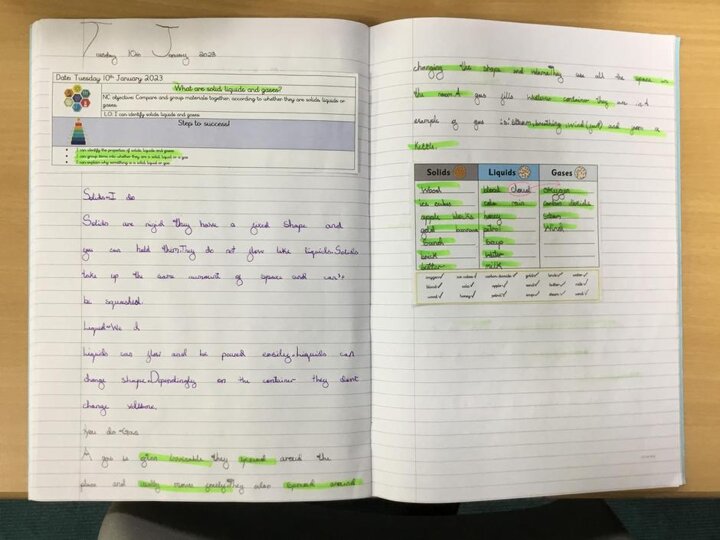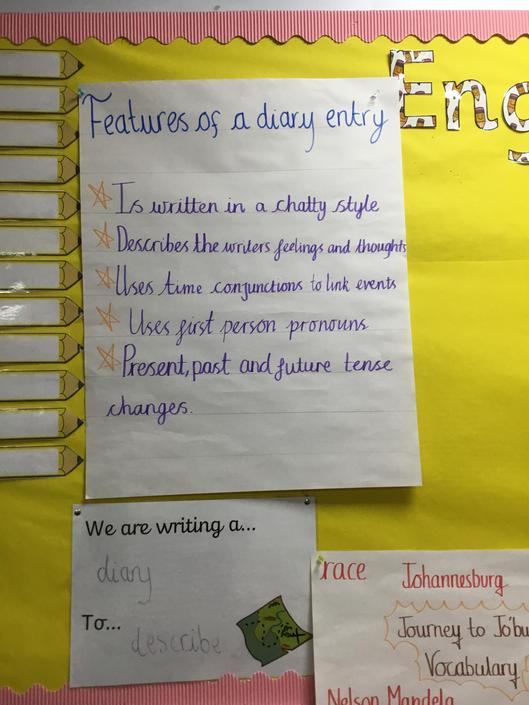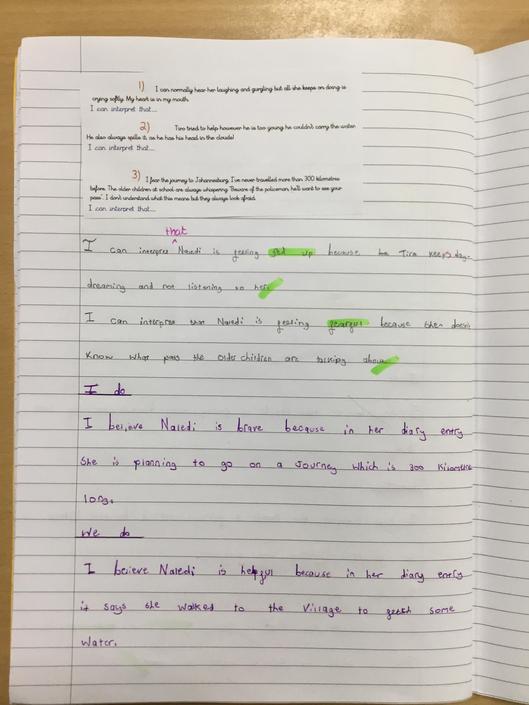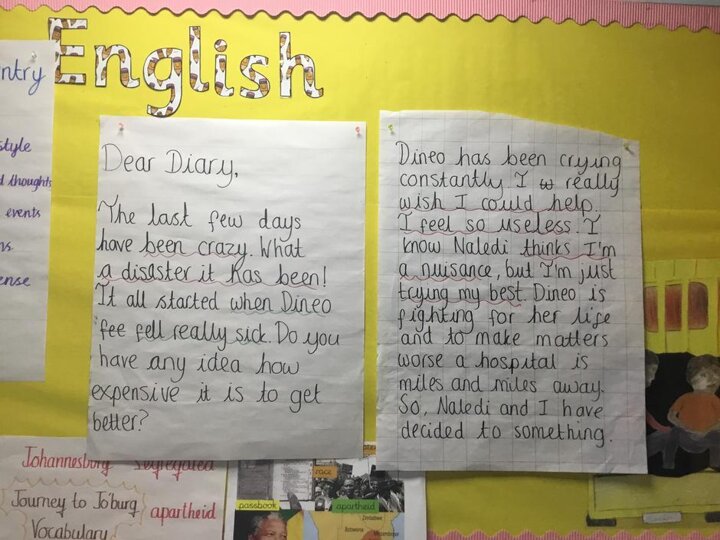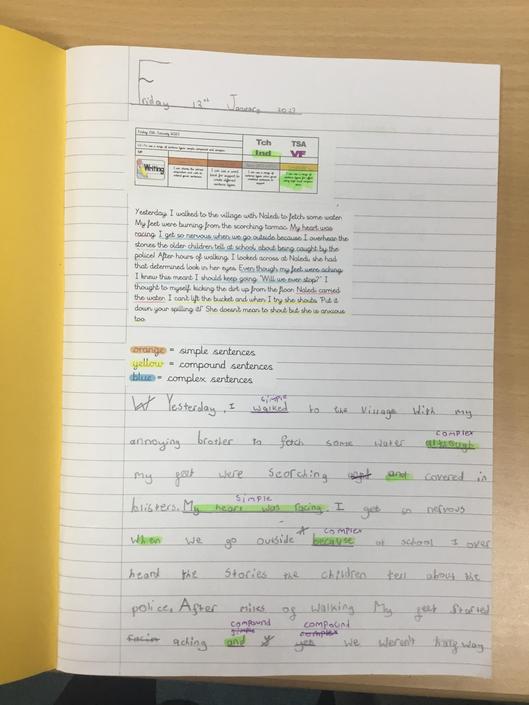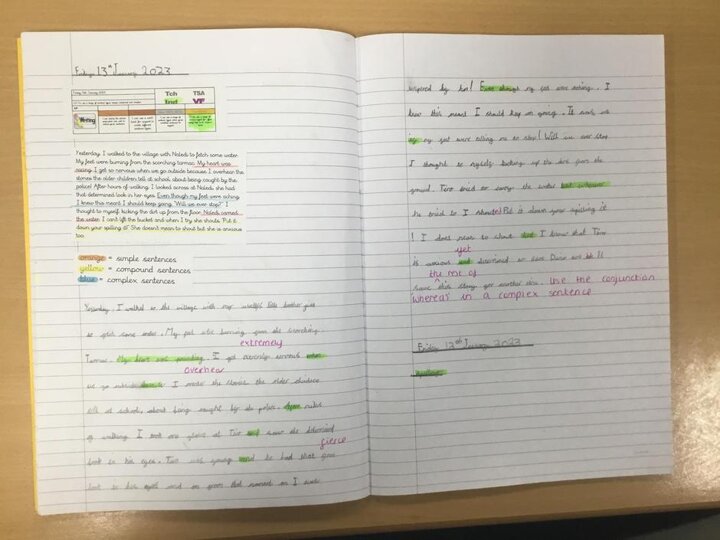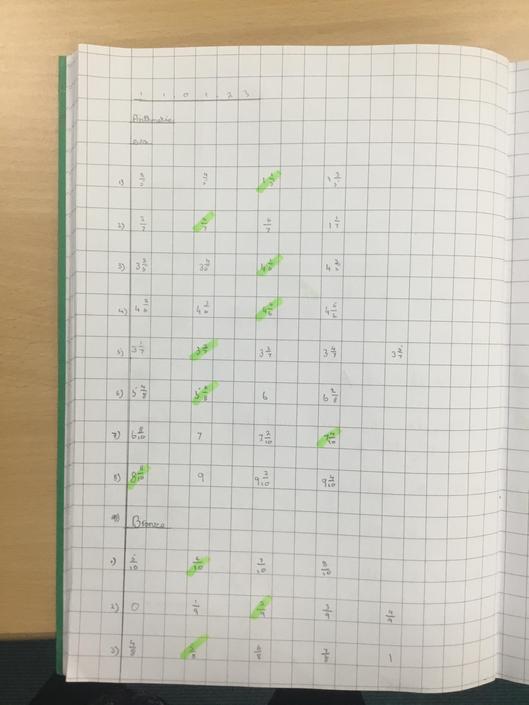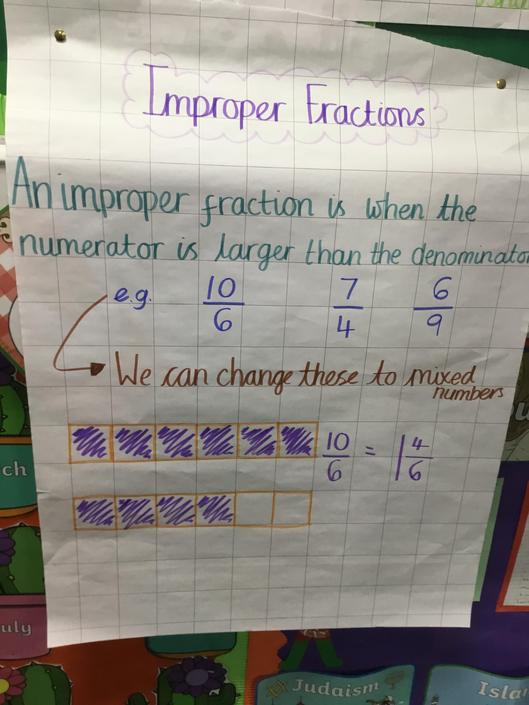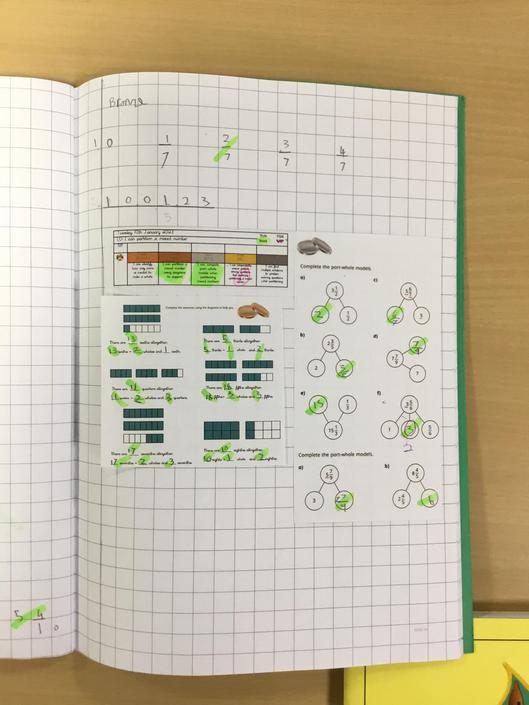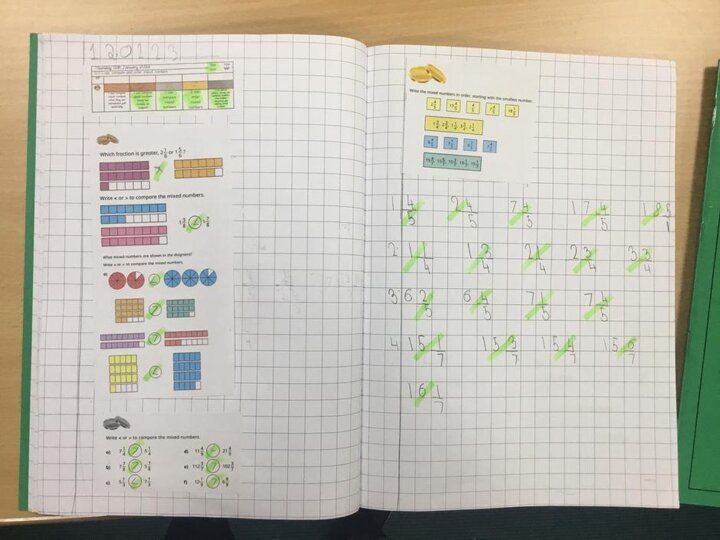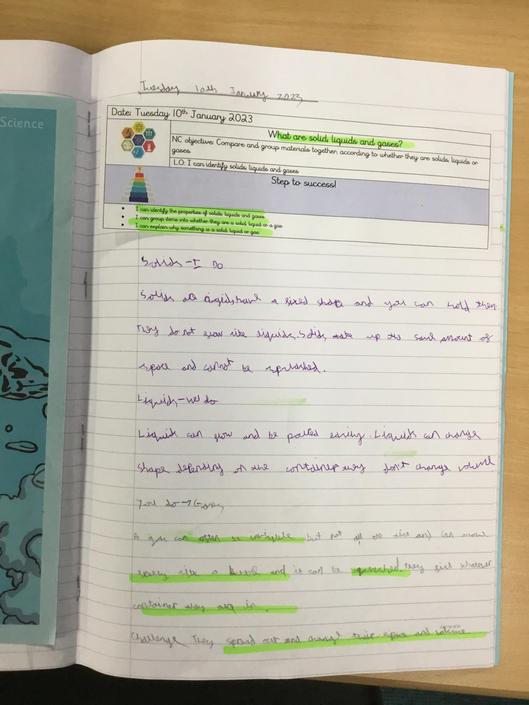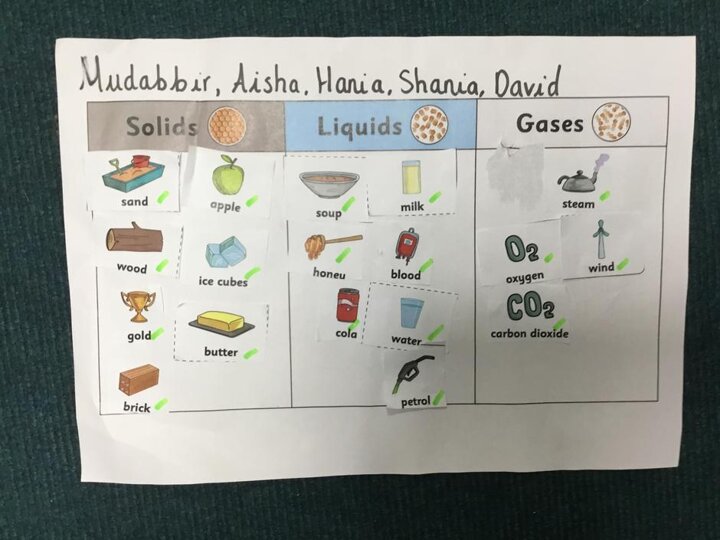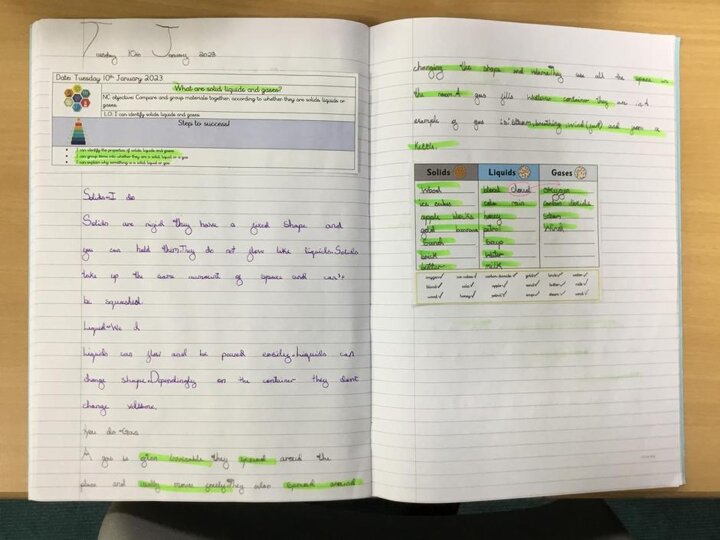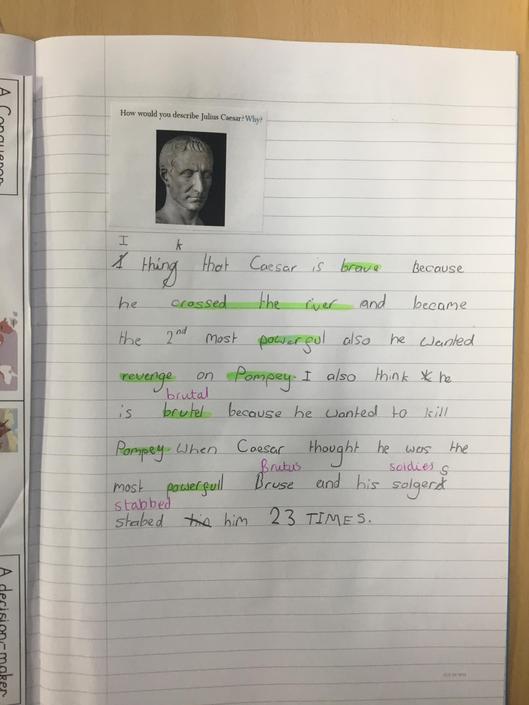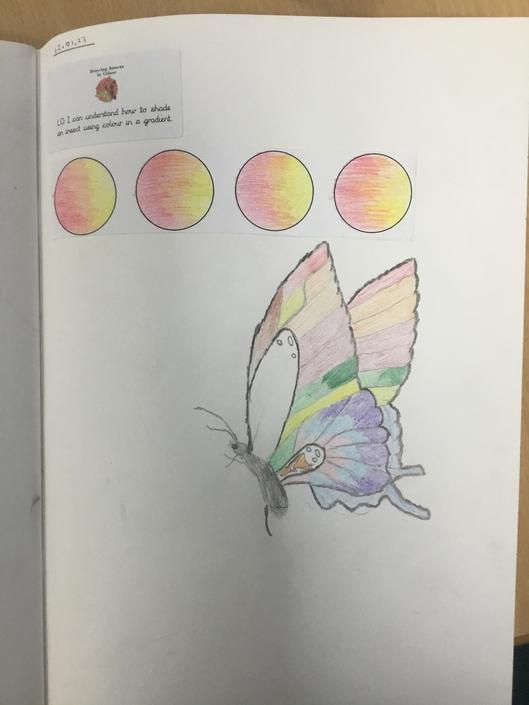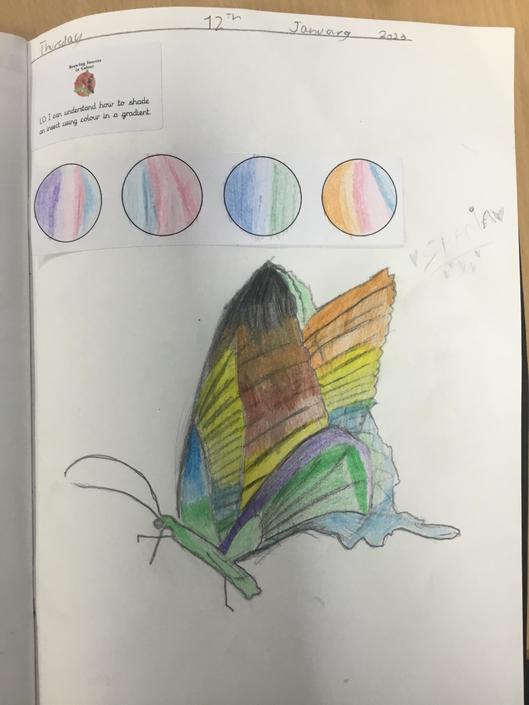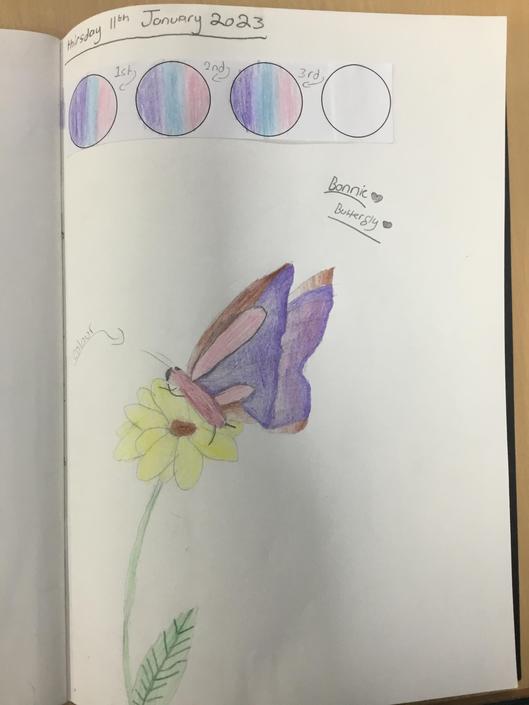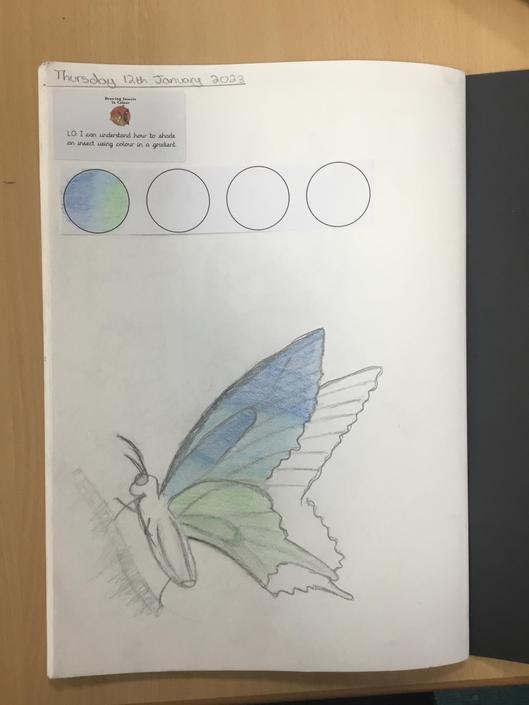We have flown into our second week of our first Spring term despite these dark mornings! Take a look below to see what we have been learning all about this week.
Grammar
In Grammar this week we learnt all about informal and formal language. This links well into our Writing lessons in which we have began to prepare to write a diary entry. We learnt that formal language has a more serious tone compared to informal language which is a lot chattier. We discussed why we would use informal language in a diary entry opposed to using formal language. We also looked at different colloquialisms (e.g. it's raining cats and dogs) and discussed their meaning and how they are often used in informal writing or informal speaking.
Writing
In Writing this week we have begun to prepare for our first independent write of 2023 which will be a diary entry from the perspective of our main character Naledi. On Tuesday, we considered the features of a diary entry and discussed the difference between a diary entry and a narrative. We had some great discussions about the importance of thoughts and feelings in diary entries and how a strong sense of voice helps to make a diary entry more personal. On Thursday, we looked at the different sentence types. We looked at statement, command, exclamation and question sentences and how we can use these in our writing. On Friday, we looked at different sentence structures. We learnt about simple, compound and complex sentences and how we can use a balance of these in our writing to add detail but to also create a strong sense of voice. I have been so impressed with Manatees writing this week, let's keep up the great work!
Arithmetic
In Arithmetic this week we have been consolidating our learning surrounding counting in fractions beyond 1. I have been so impressed with the understanding Manatees have shown with this area of Maths as it can often be tricky when we count in fractions especially when our answer goes over the next whole.
Maths
In Maths we have continued with our Y4 topic of 'Fractions'. On Tuesday we looked at mixed numbers and how we can partition them. We first looked at bar models to help us to partition a mixed number into wholes and fractions and we then moved onto partitioning mixed numbers using part-whole models. On Wednesday we then added mixed numbers to number lines before moving onto comparing and ordering mixed numbers on Thursday. We then completed the week by delving deeper into improper fractions on Friday. Manatees have shown an excellent understanding of fractions so far, so a huge well done Manatees!
Science
In Science we have started a new Chemistry topic entitled 'States of Matter'. This week we learnt all about the three states of matter: solids, liquids and gases. We looked at the basic properties of each state of matter and we then sorted everyday objects into whether they are a solid, liquid or gas. There were some tricky objects to sort such as honey and clouds. However we had some really good discussions about why these are trickier to classify. This was a great introductory lesson for our Science topic and we look forward to learning more about the different states of matter in greater detail this term.
History
In History this week we continued with our topic entitled 'The Roman Empire'. This week we learnt all about the infamous Roman governor Julius Caesar. Y4 Manatees were absolutely fascinated by the life and achievements of Julius Caesar and how he contributed to the success of The Roman Empire. Y4 really understand what type of person Julius Caesar was and why he is an important figure in Roman History. Manatees were shocked to learn about the passing of Julius Caesar as this left us all wondering who would lead Rome now he was gone? We look forward to finding our answer in next week's lesson!
Geography
In Geography this week we continued with our topic 'Rhine and The Mediterranean'. This week we learnt all about the German city of Cologne which is found on the River Rhine. We first located Cologne on a map of Europe and then delved deeper into the term 'confluence'. Later on in the lesson, we the considered how Cologne uses the River Rhine on a daily basis. For example, Cologne uses the River Rhine for the transportation of goods and for leisure opportunities such as fishing. For our final task, we looked at some geographical data. Did you know that Cologne is the city in Europe most likely to flood?
Art
Yet again, I really wanted to share some of the spectacular Art work created by Y4 Manatees this week. This week we developed our skill of blending to create an insect piece of Art using colour. Take a look below at some of the truly amazing pieces created by Y4 Manatees this week!
Thank you all for your continued support with your children's learning, we look forward to sharing some more amazing learning next week. Enjoy your weekend!
Miss Selman and Miss Marsh

